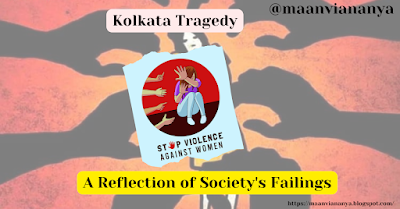Introduction
In the heart of one of the world's oldest civilizations, where women are revered in scriptures, the reality on the ground paints a starkly different picture. Despite advancements in education and technology, women's safety in India remains a critical issue, compounded by alarming rates of sexual violence.
The Stark Statistics
India's National Crime Records Bureau (NCRB) reports chilling figures: in 2022 alone, there were 31,677 cases of rape registered across the country
(Wikipedia). This averages to about 86 cases per day, a staggering reminder of the pervasive threat that looms over women. States like Rajasthan, Uttar Pradesh, and Madhya Pradesh report the highest numbers, with the national capital, Delhi, leading among metropolitan cities (
India Today).
Legal Framework and Social Stigma
Despite stringent laws enacted to protect women, including the
Criminal Law (Amendment) Act of 2013, which revised the definition of rape and introduced harsher penalties, the effectiveness of these laws is often undermined by
social stigma and the victims' distrust of the policing system. The
under-reporting of sexual assault due to societal pressure and the fear of retribution remains one of the biggest challenges in the fight against this scourge (
Wikipedia).
Economic Dependence and Vulnerability
Economic dependence on male family members often leaves women vulnerable to abuse, with few avenues for escape. The informal nature of much of women's work in India offers little in the way of social protections, exacerbating their precarious position in the face of violence (
ISDM).
The Role of Education and Community Initiatives
Addressing this issue requires more than just legal solutions; it necessitates a societal transformation. Gender equality education plays a pivotal role in changing societal attitudes. Programs that teach gender equality from a young age and community initiatives that empower women are essential in shifting the deep-seated biases that perpetuate violence against women.
Case Studies and Voices
The voices of survivors often go unheard, buried under the weight of cultural expectations. Highlighting individual stories can shift public perception and understanding, creating a more empathetic and supportive environment for survivors to come forward. Organizations like the One Stop Centre scheme, launched in 2015, provide a ray of hope, offering comprehensive services to support women affected by violence.
The tragic incident involving the rape and murder of a trainee doctor at RG Kar Medical College in Kolkata has sparked widespread outrage and calls for justice.
The Incident and Its Aftermath
In the heart of Kolkata, a city woven with cultural richness and historical significance, a dark shadow looms—a stark reminder of the vulnerabilities that women continue to face. The recent
rape and murder of a trainee doctor at
RG Kar Medical College has not only shaken the local community but has also sparked a national outcry. Why must our society repeatedly fail our women?
The brutal crime committed within the supposed safety of a medical institution raises a harrowing question: If not there, where can women be safe? The aftermath saw the arrest of 19 individuals connected to subsequent vandalism at the hospital, but this act of violence goes beyond mere criminal justice; it challenges the very ethos of our society.
The Echoes of Outrage
Across India, from Delhi to Amritsar, medical professionals and citizens alike have taken to the streets and to social media, united in their demand for justice and for reforms. The
Indian Medical Association's call for a 24-hour strike underscores the gravity of the situation and the widespread solidarity among healthcare workers. What does it say about our society when those sworn to heal are themselves wounded within their sanctuaries?
The Political and Social Repercussions
As political leaders, including West Bengal's Chief Minister, vocally support severe punishments and even the death penalty for the culprits, one must ponder: Can harsher penalties alone deter such heinous acts? The societal structures that perpetuate such violence need scrutiny—our laws, our law enforcement, and our cultural attitudes towards women.
The Demand for Systemic Change
This tragic event serves as a catalyst for a much-needed discussion on systemic changes. The outpouring of support and demand for safety reforms is heartening, yet it highlights a critical need for a shift in how we, as a society, protect and respect women. How many more vigils, protests, and hashtags will it take for real change to occur?
In Brief
The
Kolkata rape and murder are not just a news story; they are a mirror reflecting the deep-seated issues in our society. It questions our collective conscience—how do we respond to such atrocities, and more importantly, how do we prevent them? As we seek justice for the victim, let us also seek a better understanding and a real commitment to change. How long will we let the shadows of violence darken our society?
This incident is not just a call for justice but a wake-up call for society to introspect and act. The road to safety and equality is long, but it is one that we must embark on with resolve and urgency. How will we answer?
The freedom and safety of women in India remain constrained under the shadows of societal norms and inadequate enforcement of laws. Real independence for women will only be achieved when they can live without fear in their homes, streets, and workplaces. This calls for a collective effort to reinforce the legal structures, educate communities, and most importantly, shift the cultural attitudes that marginalize women.
Call to Action
It is imperative for every individual to participate in creating safer spaces for women. Whether through supporting local NGOs, participating in awareness campaigns, or simply educating oneself and others about gender sensitivities, every effort counts towards building a society where women can truly feel independent and secure.!!!!!!!!!!!!!!!
Maanvi Ananya
Crafting Words that Spark Digital Wonders
📚 Creative Content Maestro | 🌐 Digital Marketing Visionary
🔗: www.linkedin.com/in/maanvi-contentwriter
✍️:https://maanviananya.blogspot.com/
Let's connect the dots between storytelling and strategy for
unforgettable digital experience





No comments:
Post a Comment